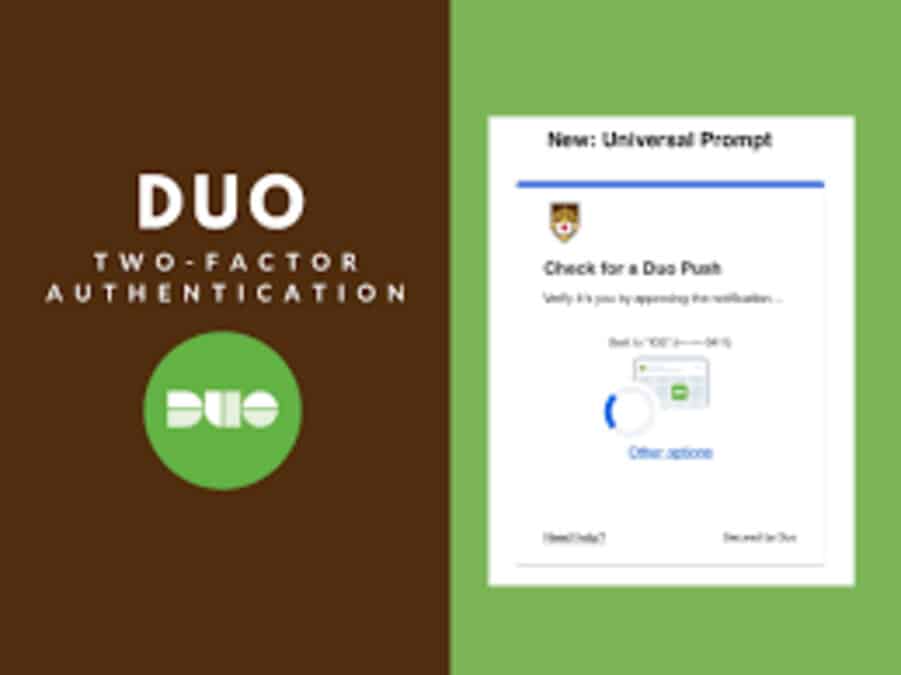Duo 2FA: The Best Way to Securing Powerful Digital Assets

Duo 2FA in today’s rapidly evolving digital landscape, safeguarding personal and professional information is more critical than ever. One of the most effective ways to bolster your online security is through the implementation of Two-Factor Authentication (2FA). Specifically, Duo 2FA has emerged as a leading solution for enhancing security measures. This guide delves deeply into the features, benefits, and implementation strategies of Duo 2FA to help you achieve optimal security for your digital assets.
Understanding Two-Factor Authentication (2FA)
Before being granted access to an account, users must submit two different forms of identity as part of the security process known as Two-Factor Authentication (2FA).. This additional layer of security significantly reduces the likelihood of unauthorized access, even if a password is compromised.
What is Duo 2FA?
Duo 2FA is a robust, multi-layered authentication solution designed to protect users by requiring a second verification factor. Developed by Duo Security, a Cisco company, Duo 2FA integrates seamlessly with various platforms to enhance security measures without compromising user convenience.
Why Choose Duo 2FA?

Duo 2FA stands out among other authentication solutions due to its user-friendly interface, comprehensive security features, and then seamless integration capabilities. Here are some compelling reasons to choose Duo 2FA:
1. Enhanced Security
Duo 2FA provides a significant security boost by combining something you know (your password) with something you have (a mobile device or hardware token). This dual verification mechanism greatly minimizes the risk of unauthorized access.
2. User-Friendly Experience
Unlike traditional authentication methods that can also be cumbersome, Duo 2FA offers a straightforward user experience. Its intuitive design allows users to authenticate quickly and then efficiently, reducing potential disruptions to workflow.
3. Versatile Integration
Duo 2FA integrates effortlessly with a wide range of applications and then systems, including VPNs, cloud services, and then on-premises applications. This versatility ensures that organizations can also implement Duo 2FA across their entire infrastructure.
4. Comprehensive Reporting
Duo 2FA includes advanced reporting features that provide insights into authentication activity and then potential security threats. This data helps organizations monitor and then respond to suspicious activities effectively.
Key Features of Duo 2FA
Duo 2FA is packed with features that enhance both security and then usability. Understanding these features can also help you maximize the benefits of Duo 2FA for your organization.
*1. Adaptive Authentication
Adaptive authentication modifies the authentication requirements based on an assessment of the risk associated with each login attempt. For instance, if a user is accessing an account from an unfamiliar location or device, Duo 2FA may prompt for additional verification.
*2. Push Notifications
Duo 2FA supports push notifications, which enable users to approve or deny login attempts with a single tap on their mobile device. This method is not only secure but also highly convenient.
*3. One-Time Passcodes (OTPs)
In addition to push notifications, Duo 2FA offers the option to use one-time passcodes (OTPs) generated by the Duo Mobile app. These passcodes provide a secure alternative when push notifications are not available.
*4. Hardware Tokens
For organizations requiring an additional layer of security, Duo 2FA supports hardware tokens. These physical devices generate time-based OTPs, offering a tangible form of authentication.
*5. Single Sign-On (SSO) Integration
Duo 2FA integrates seamlessly with Single Sign-On (SSO) solutions, simplifying the login process while maintaining high-security standards. By allowing users to access numerous apps with a single set of login credentials, security is increased and then password fatigue is decreased.
Implementing Duo 2FA: A Step-by-Step Guide

Implementing Duo 2FA involves several key steps to ensure a smooth and then effective deployment. Follow this comprehensive guide to integrate Duo 2FA into your security infrastructure.
*1. Assess Your Security Needs
Before deploying Duo 2FA, evaluate your organization’s security requirements and identify the systems and then applications that need protection. This assessment will help you determine the appropriate configuration and then implementation strategy.
*2. Create a Duo Security Account
Start by creating a Duo Security account. This account will serve as the central management hub for your Duo 2FA implementation. Follow the registration process on the Duo Security website to get started.
*3. Configure Duo 2FA Settings
Once your account is set up, configure the Duo 2FA settings to align with your organization’s security policies. This includes setting up authentication methods, integrating with existing applications, and then defining user access controls.
*4. Enroll Users
Enroll users into the Duo 2FA system by providing them with instructions on how to set up their authentication methods. This typically involves downloading the Duo Mobile app and then registering their devices.
*5. Test the Implementation
Before rolling out Duo 2FA organization-wide, conduct thorough testing to ensure that the system functions correctly and then that users can also authenticate without issues. Address any problems that arise during this testing phase.
**6. Roll Out Duo 2FA
After successful testing, deploy Duo 2FA across your organization. Communicate the rollout plan to all users and then provide support to address any questions or concerns during the transition.
**7. Monitor and Maintain
Regularly monitor the Duo 2FA system to ensure it continues to function as intended. Review authentication logs, update security settings as needed, and then provide ongoing support to users.
Best Practices for Using Duo 2FA
To maximize the effectiveness of Duo 2FA, adhere to the following best practices:
**1. Educate Users
Ensure that all users understand the importance of Duo 2FA and thenhow to use it effectively. Provide training and then resources to help them navigate the authentication process smoothly.
**2. Regularly Update Security Policies
Periodically review and then update your security policies to reflect any changes in your organization’s needs or advancements in security technology.
**3. Monitor Authentication Activity
Regularly monitor authentication activity to detect any unusual patterns or potential security threats. Use the reporting features provided by Duo 2FA to gain insights into user behavior and then system performance.
**4. Keep Software Up-to-Date
Ensure that all software, including the Duo Mobile app and then hardware tokens, is kept up-to-date with the latest security patches and then updates.
Read more: OAuth 2.0





